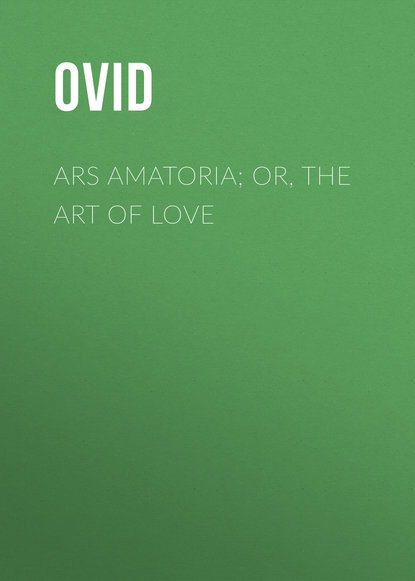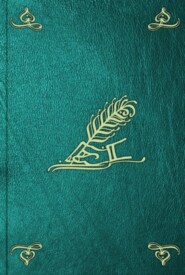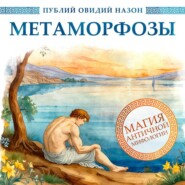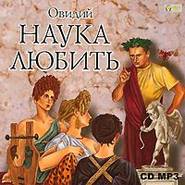По всем вопросам обращайтесь на: info@litportal.ru
(©) 2003-2024.
✖
Ars Amatoria; or, The Art Of Love
Настройки чтения
Размер шрифта
Высота строк
Поля
[ Nor was the stage.—Ver. 104. The 'pulpita' was that part of the stage where the actors stood who spoke. It was elevated above the orchestra, where the Chorus, and dancers and musicians were placed.]
722 (return (#x1_x_1_i38))
[ Upon the maidens.—Ver. 116. Some writers say that only thirty women were carried off. Valerius Antius made the number 427, and Plutarch mentions a statement that it was 600]
723 (return (#x1_x_1_i39))
[ The partition.—Ver. 141. See the Amores, Book iii. El. ii. 1. 19.]
724 (return (#x1_x_1_i39))
[ Let the usual subjects.—Ver. 144. 'Publica verba' means the compliments of the day,' and the 'topics suited to the occasion.']
725 (return (#x1_x_1_i39))
[ Statues of ivory.—Ver. 149. For an account of this procession, see the Amores, Book iii. El. ii. 1. 43.]
726 (return (#x1_x_1_i39))
[ Your fingers.—Ver. 150. See 1. 42, of the same Elegy.]
727 (return (#x1_x_1_i39))
[ Dirty ground.—Ver. 154. See 1. 26, of the same Elegy.]
728 (return (#x1_x_1_i39))
[ Knee against it.—Ver. 158. See 1. 24, of the same Elegy.]
729 (return (#x1_x_1_i39))
[ With his ready hand.—Ver. 160. As the seats of the Circus were hard, the women often made use of a cushion to sit upon. Those who were not so fortunate as to get a front seat, and so rest their feet in the railings opposite (see the Second Elegy of the Third Book of the Amores, 1. 64, and the Note), used a footstool, 'scamnum,' (which is mentioned here in the 162nd line,) on which they rested their feet.]
730 (return (#x1_x_1_i39))
[ Its sad duties.—Ver. 164. Juvenal tells us that gladiatorial spectacles were sometimes exhibited in the Forum.]
731 (return (#x1_x_1_i39))
[ Himself receives a wound.—Ver. 166. The word 'habet,' here used, is borrowed from the usage at the gladiatorial games. When a gladiator was wounded, the people called aloud 'habet,' or 'hoc habet and the one who was vanquished lowered his arms, in token of submission. If the people chose that he should be saved, they pressed down their thumbs; but they turned them up, if they desired that he should be killed.]
732 (return (#x1_x_1_i39))
[ Asking for the racing list.—Ver. 167. The 'libellus,' here mentioned, was the list of the horses, with their names and colours, and those of the drivers. It served the same purpose as the race-cards on our courses.]
733 (return (#x1_x_1_i39))
[ Having deposited the stake.—Ver. 168. When a bet was made, the parties betting gave to each other a pledge, 'pignus,' in the shape of some trinket, such as a ring. When the bet was completed, they touched hands.]
734 (return (#x1_x_1_i40))
[ When of late.—Ver. 171. He speaks of a 'Naumachia,' or mimic sea-fight, which had been lately exhibited at Rome by Augustus, in commemoration of the battle of Actium. As Antony had collected his forces from the East and all parts of Greece, his ships are alluded to as the Persian and Cecropian, or Athenian ships. The term, 'Naumachia,' was applied both to the representation of a sea-fight, and to the place where it was given. They were sometimes exhibited in the Circus or Amphitheatre, the water being introduced under-ground, but more generally in spots constructed for the purpose. The first was shown by Julius Cæsar, who caused a lake to be dug for the purpose in a part of the Campus Martius, which Suetonius calls 'the lesser Codeta.' This was filled up by Augustus, who dug a lake near the Tiber for the same purpose; to which, probably, reference is here made.]
735 (return (#x1_x_1_i40))
[ Introduced.—Ver. 172. 'Induxit.' By the use of this word, it would seem that Augustus Cæsar introduced the ships, probably, from the river Tiber into the lake.]
736 (return (#x1_x_1_i40))
[ See! Cæsar prepares.—Ver. 177. Augustus sent his grandson, Caius, the son of his daughter Julia and Agrippa, to head an expedition against Phraates, the king of the Parthians, the conquerors of Crassus; from this expedition he did not live to return, but perished in battle.]
737 (return (#x1_x_1_i40))
[ Crassi, rejoice.—Ver. 180. See the Fasti, Book v. 1. 583-8, with the Note. Also Book vi. 1. 465]
738 (return (#x1_x_1_i40))
[ Of the Gods.—Ver. 183. In a spirit of adulation, he deifies Caius Cæsar, and his brother Lucius.]
739 (return (#x1_x_1_i40))
[ First of the youths.—Ver. 194. The 'princeps juvenum' had the honour of riding first, in the review of the Equestrian ranks by the Emperor. See the Tristia, Book ii. 1. 90. Caius did not live to fulfil this prophecy, as he was slain through the perfidy of the Parthian general.]
740 (return (#x1_x_1_i40))
[ Since thou hast brothers.—Ver. 195. He alludes, probably, to Lucius Cæsar, the other grandson of Augustus, and Marcus Agrippa, the husband of Julia, the daughter of Augustus.]
741 (return (#x1_x_1_i40))
[ Hast a sire.—Ver. 196. He had been adopted by Augustus. *What rivers are borne.—Ver. 220. See the twentieth line of the Second Elegy, Book iv. of the Tristia. * Perfectly well.—Ver. 222. See a similar passage in the Tristia' Book iv. EL ii. 1. 24.]
742 (return (#x1_x_1_i42))
[ The Euphrates.—Ver. 223. The rivers were generally personified by the ancients as being crowned with reeds.]
743 (return (#x1_x_1_i42))
[ The one whose.—Ver. 224. The young man is supposed to be addressing the damsel in these words.]
744 (return (#x1_x_1_i42))
[ From Danaë.—Ver. 225. He means, that Persia was so called from Perses, the son of Andromeda, by Perseus, the son of Danaë. It is more generally thought to have been so called from a word signifying; a horse.' Achæmenes was one of the ancient kings of Persia.]
745 (return (#x1_x_1_i43))
[ Still it is fatal.—Ver. 236. 'Solet,' 'is wont,' is certainly a pre-narrative reading here to 'nocet.']
746 (return (#x1_x_1_i44))
722 (return (#x1_x_1_i38))
[ Upon the maidens.—Ver. 116. Some writers say that only thirty women were carried off. Valerius Antius made the number 427, and Plutarch mentions a statement that it was 600]
723 (return (#x1_x_1_i39))
[ The partition.—Ver. 141. See the Amores, Book iii. El. ii. 1. 19.]
724 (return (#x1_x_1_i39))
[ Let the usual subjects.—Ver. 144. 'Publica verba' means the compliments of the day,' and the 'topics suited to the occasion.']
725 (return (#x1_x_1_i39))
[ Statues of ivory.—Ver. 149. For an account of this procession, see the Amores, Book iii. El. ii. 1. 43.]
726 (return (#x1_x_1_i39))
[ Your fingers.—Ver. 150. See 1. 42, of the same Elegy.]
727 (return (#x1_x_1_i39))
[ Dirty ground.—Ver. 154. See 1. 26, of the same Elegy.]
728 (return (#x1_x_1_i39))
[ Knee against it.—Ver. 158. See 1. 24, of the same Elegy.]
729 (return (#x1_x_1_i39))
[ With his ready hand.—Ver. 160. As the seats of the Circus were hard, the women often made use of a cushion to sit upon. Those who were not so fortunate as to get a front seat, and so rest their feet in the railings opposite (see the Second Elegy of the Third Book of the Amores, 1. 64, and the Note), used a footstool, 'scamnum,' (which is mentioned here in the 162nd line,) on which they rested their feet.]
730 (return (#x1_x_1_i39))
[ Its sad duties.—Ver. 164. Juvenal tells us that gladiatorial spectacles were sometimes exhibited in the Forum.]
731 (return (#x1_x_1_i39))
[ Himself receives a wound.—Ver. 166. The word 'habet,' here used, is borrowed from the usage at the gladiatorial games. When a gladiator was wounded, the people called aloud 'habet,' or 'hoc habet and the one who was vanquished lowered his arms, in token of submission. If the people chose that he should be saved, they pressed down their thumbs; but they turned them up, if they desired that he should be killed.]
732 (return (#x1_x_1_i39))
[ Asking for the racing list.—Ver. 167. The 'libellus,' here mentioned, was the list of the horses, with their names and colours, and those of the drivers. It served the same purpose as the race-cards on our courses.]
733 (return (#x1_x_1_i39))
[ Having deposited the stake.—Ver. 168. When a bet was made, the parties betting gave to each other a pledge, 'pignus,' in the shape of some trinket, such as a ring. When the bet was completed, they touched hands.]
734 (return (#x1_x_1_i40))
[ When of late.—Ver. 171. He speaks of a 'Naumachia,' or mimic sea-fight, which had been lately exhibited at Rome by Augustus, in commemoration of the battle of Actium. As Antony had collected his forces from the East and all parts of Greece, his ships are alluded to as the Persian and Cecropian, or Athenian ships. The term, 'Naumachia,' was applied both to the representation of a sea-fight, and to the place where it was given. They were sometimes exhibited in the Circus or Amphitheatre, the water being introduced under-ground, but more generally in spots constructed for the purpose. The first was shown by Julius Cæsar, who caused a lake to be dug for the purpose in a part of the Campus Martius, which Suetonius calls 'the lesser Codeta.' This was filled up by Augustus, who dug a lake near the Tiber for the same purpose; to which, probably, reference is here made.]
735 (return (#x1_x_1_i40))
[ Introduced.—Ver. 172. 'Induxit.' By the use of this word, it would seem that Augustus Cæsar introduced the ships, probably, from the river Tiber into the lake.]
736 (return (#x1_x_1_i40))
[ See! Cæsar prepares.—Ver. 177. Augustus sent his grandson, Caius, the son of his daughter Julia and Agrippa, to head an expedition against Phraates, the king of the Parthians, the conquerors of Crassus; from this expedition he did not live to return, but perished in battle.]
737 (return (#x1_x_1_i40))
[ Crassi, rejoice.—Ver. 180. See the Fasti, Book v. 1. 583-8, with the Note. Also Book vi. 1. 465]
738 (return (#x1_x_1_i40))
[ Of the Gods.—Ver. 183. In a spirit of adulation, he deifies Caius Cæsar, and his brother Lucius.]
739 (return (#x1_x_1_i40))
[ First of the youths.—Ver. 194. The 'princeps juvenum' had the honour of riding first, in the review of the Equestrian ranks by the Emperor. See the Tristia, Book ii. 1. 90. Caius did not live to fulfil this prophecy, as he was slain through the perfidy of the Parthian general.]
740 (return (#x1_x_1_i40))
[ Since thou hast brothers.—Ver. 195. He alludes, probably, to Lucius Cæsar, the other grandson of Augustus, and Marcus Agrippa, the husband of Julia, the daughter of Augustus.]
741 (return (#x1_x_1_i40))
[ Hast a sire.—Ver. 196. He had been adopted by Augustus. *What rivers are borne.—Ver. 220. See the twentieth line of the Second Elegy, Book iv. of the Tristia. * Perfectly well.—Ver. 222. See a similar passage in the Tristia' Book iv. EL ii. 1. 24.]
742 (return (#x1_x_1_i42))
[ The Euphrates.—Ver. 223. The rivers were generally personified by the ancients as being crowned with reeds.]
743 (return (#x1_x_1_i42))
[ The one whose.—Ver. 224. The young man is supposed to be addressing the damsel in these words.]
744 (return (#x1_x_1_i42))
[ From Danaë.—Ver. 225. He means, that Persia was so called from Perses, the son of Andromeda, by Perseus, the son of Danaë. It is more generally thought to have been so called from a word signifying; a horse.' Achæmenes was one of the ancient kings of Persia.]
745 (return (#x1_x_1_i43))
[ Still it is fatal.—Ver. 236. 'Solet,' 'is wont,' is certainly a pre-narrative reading here to 'nocet.']
746 (return (#x1_x_1_i44))














